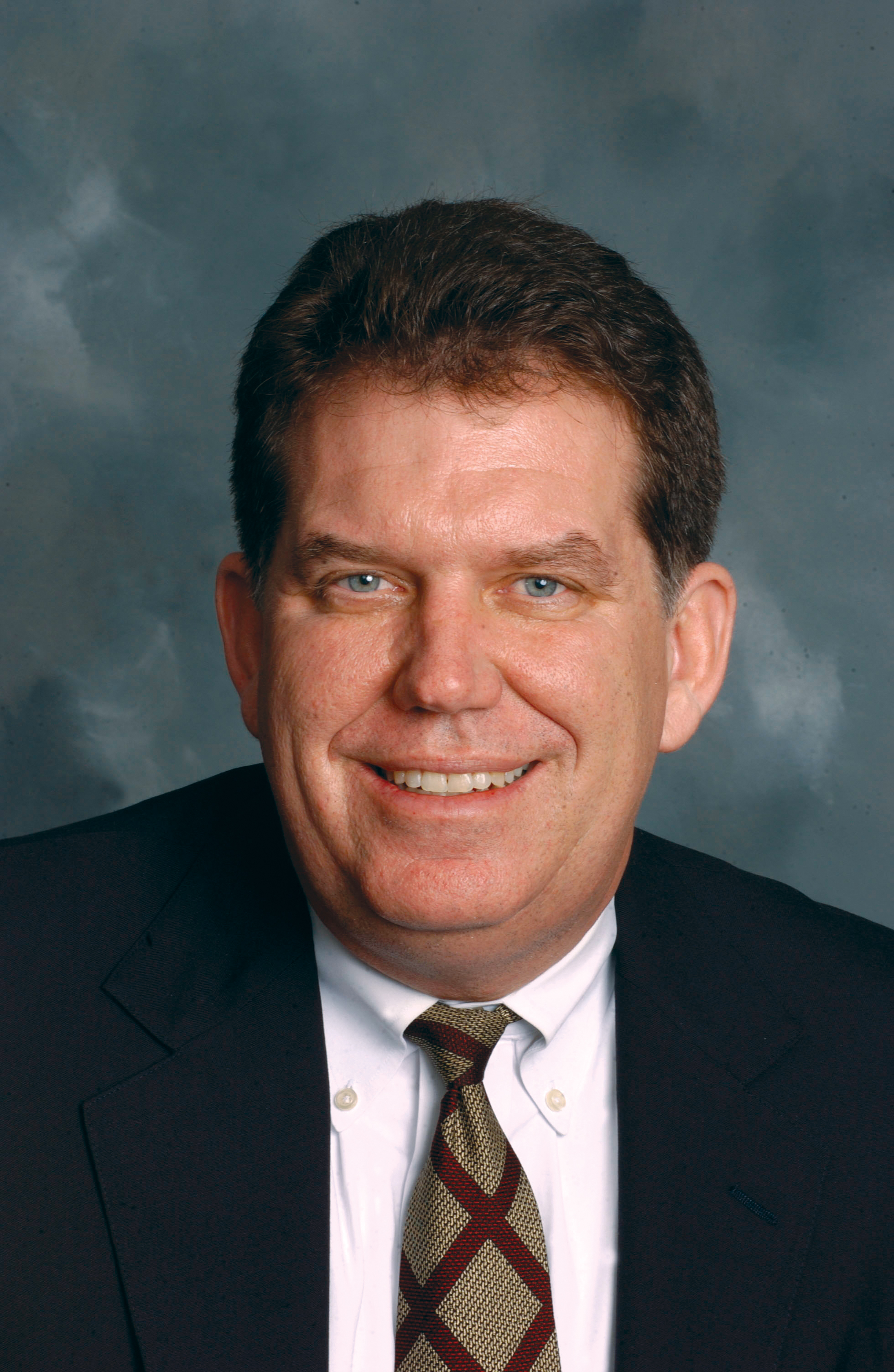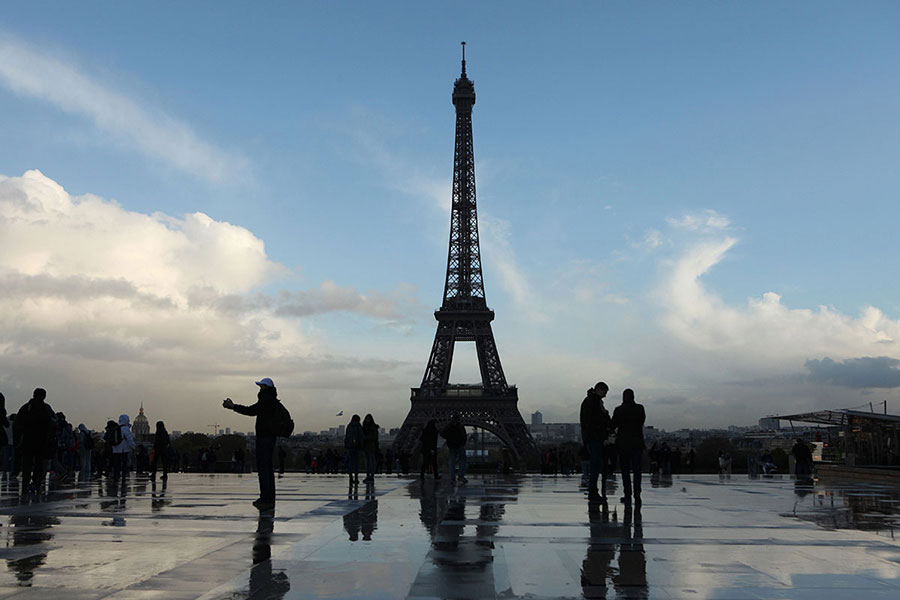Though only time will tell, there’s reason to be optimistic about the recently concluded Paris climate agreement, according to University of Virginia Board of Visitors member Kevin Fay.
Fay, a 1977 graduate of the College of Arts & Sciences, was part of the 21st Conference of Parties in Paris last week, where 196 countries reached a historic climate change agreement.
The Paris accord aims to keep global temperature increases “well below” 2 degrees Celsius relative to pre-industrial levels, with the hope of further limiting increases to 1.5 degrees Celsius. The world’s richer countries pledged $100 billion annually to help poorer countries develop green energy sources. Each of the participating countries agreed to individual goals for reducing greenhouse gas emissions, with progress to be reviewed every five years.

Board of Visitors member Kevin Fay has long been a firsthand observer of the international climate change negotiation process.
UVA Today caught up with Fay after he returned from Paris.
Q. What was your role in the Paris talks?
A. First of all, UVA experts have played a significant role on the issue and in Paris. Daniel Reifsnyder, a visiting scholar in the environmental sciences department who is also Deputy Assistant Secretary of State for Oceans and Environment, chaired the group that came up with the initial agreement text. Bill Antholis, executive director of the Miller Center, served on the Clinton White House team that participated in the 1997 Kyoto climate change negotiations, an important predecessor to Paris.
Officially, we attended as “observers.” I was in Paris as part of my work with the International Climate Change Partnership and the United Nation’s Climate and Clean Air Coalition, where I lead private-sector industry groups addressing ozone protection and climate change policies. I reported on that group’s progress and observed many of the meetings in Paris. Between meetings, we worked with government representatives from many different countries and other experts to provide information on policy issues and options and inform the dialogue as they decided on a path forward.
Q. How would you describe the atmosphere of the talks, as leaders from nearly 200 countries gathered to face a common problem?
A. Upon arrival, you immediately sensed that the atmosphere was different from prior years. Climate policy has been a 25-year discussion with many starts and stops. The 2009 talks in Copenhagen were considered to be a very frustrating experience. The mindset in Paris seemed much more cooperative, focused on finding a path forward and bridging issues that have, for more than two decades, divided developed and developing countries and other competing nations.
It was clear that people had come to Paris to achieve an agreement. That does not mean that you arrive at one quickly or that it is an easy process, but I think that the U.S.’s and others’ work in bringing the process along over the past few years paid significant dividends.
Q. What do you find most encouraging about the agreement?
A. This agreement does not “solve” the climate change challenge or necessarily prevent climate change, but it does create a framework for making progress and identifying fair objectives and paths for progress. It establishes mechanisms for ascertaining countries’ progress, with periodic updates to national goals and a uniform verifiable accounting system. It also stipulates that developed countries provide financial assistance to developing countries in meeting these goals. It does not mean that there are not significant issues separating those countries, but the fact that nations, whether large or small, came together to find a common path forward, identify long-term objectives and acknowledge responsibility, is very significant.
I have had the privilege of being there from the beginning. In this day and age, where there are so many challenges to the ability of the policy community to unite around complex issues, this is really a tremendous accomplishment internationally and a significant accomplishment for U.S. leadership in the international community.
Q. What worries you about the agreement?
A. The most common questions I have heard are, “Will it work?” and, “What if countries don’t comply?” That is a risk you run in every international agreement. We are not going to know for many years. Success will require national governments to work cooperatively and operate in good faith, and it is going to take time to assess whether or not that is happening. In my experience, nations for the most part take their commitments seriously. Paris is a good start, but there are still decades of effort, learning and implementation ahead.
Q. What would you say to those worried about how the Paris agreement will impact the fossil fuel industry?
A. I think the agreement sends a uniform signal to the private sector about the desire for technology innovation and investment with regard to fossil fuels and clean energy. Some have said that this is the end of the fossil fuel era, but I am not sure I agree with that. Fossil fuels will be with us for a long time. They might be used differently, and there will certainly be continued technology advances. Paris establishes a global priority for investment and progress in this area.
Q. What role can UVA and other top universities play as the United States begins to implement strategies outlined in the agreement?
A. The University has plenty of expertise in the policy arena, with the Batten School of Leadership and Public Policy and the Miller Center helping to create a broader understanding of policymaking, decision-making and leadership. Advancing the goals of the Paris agreement will also require tremendous amounts of research and knowledge-building in science and engineering, as well as economic research as businesses consider their strategies and investments in climate-beneficial technologies and practices. We have taught a class every year at the Darden School of Business using climate issues as examples of industry collaboration on policy, and that kind of work from Darden and the McIntire School of Commerce can be important contributors. UVA also has a host of environmental policy experts who have already made significant contributions and will continue to do so.
Media Contact
Article Information
December 15, 2015
/content/qa-uva-board-member-present-paris-talks-discusses-climate-agreement

